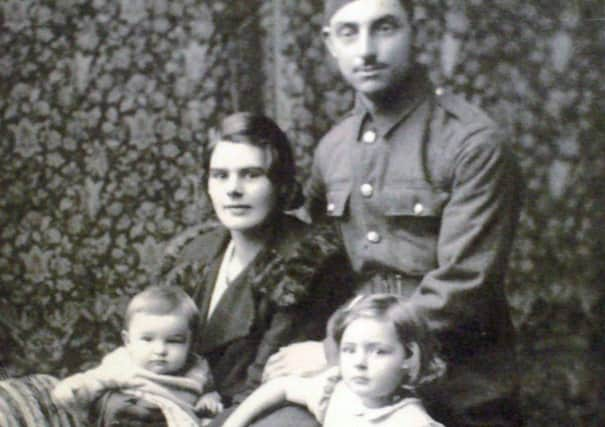Why little Elsie became one of the battle babies
This article contains affiliate links. We may earn a small commission on items purchased through this article, but that does not affect our editorial judgement.


These were children who were named after battles.
In my mother’s case, she was christened Elsie Verdun Dennett in the mining village of Bolsover, after being born 100 years ago in April 1916. Some Middy readers might remember she lived most of her life at St Andrew’s Road, Burgess Hill, and raised five children. Her husband Arthur was injured and badly shell-shocked in the Second World War.
Students of war will recall the battle of Verdun in France lasted 10 gruelling months in 1914. It was bloodiest battle in history bar none for the highest amount of slaughter per square yard, often in appalling hand-to-hand conflict. It was fought in a very compact area, and troops were shelled by millions of tons of explosive from either side, often without cover.
Advertisement
Hide AdAdvertisement
Hide AdYou might have expected her parents to name little Elsie after a battle in which the English fought. In fact the French and Germans bled each other mercilessly without help as the Germans made a push for victory and the French resisted.
But there were plenty of other battles in which we did take part for babies to be named after during the 14-18 war. During that period there were 1, 634 babies given battle names, including many girls with what had been considered the masculine name of Verdun. During that time, 901 babies joined by mother in bearing the name Verdun. But there were dozens named after terrible slaughters like Ypres, Mons, Arras, Loos , Somme and the disastrous Dardanelles. Many were first names, but a lot were used as middle names.
Some of the register entries seem extraordinary now – Passchendael, Neuve Chappell, and Vimy Rige among them.
Some got to be dubbed hero babies, named after people of huge courage like nurse Edith Cavell. Many boys got to be called Kitchener and a few were even named Haig. For many it was simply a gesture of solidarity, if not particularly flattering.
Advertisement
Hide AdAdvertisement
Hide AdThe idea of naming babies after conflicts probably began in the Boer War in South Africa, although it is worth mentioning that was another battle of Verdun in 1792. From South Africa the names Colenso, Dundee and Pretoria found their way to British birth registers, their owners having no say whatsoever in the proceedings of course.
The end of conflict brought some happier names such as Peace and Victory. One baby born on Armistice Day was named Irene, not after a battle but because Irene is the Goddess of Love. Later, once the Royal British Legion used the flower as its symbol, Poppy became very popular.
Perhaps the happiest story of the war babies was of a man described in records as Uncle Arthur. He was posted missing during the terrible fighting on the Somme , and when his wife gave birth to a daughter soon afterwards she was christened in his memory Violet Somme Martin.
Miraculously Arthur survived to return home and hold his daughter.
Advertisement
Hide AdAdvertisement
Hide AdDon’t miss out on all the latest breaking news where you live.
Here are four ways you can be sure you’ll be amongst the first to know what’s going on.
1) Make our website your homepage at www.midsussextimes.co.uk
2) Like our Facebook page at www.facebook.com/midsussextimes
3) Follow us on Twitter @midsussex_times
Advertisement
Hide AdAdvertisement
Hide Ad4) Register with us by clicking on ‘sign in’ (top right corner). You can then receive our daily newsletter AND add your point of view to stories that you read here.
And do share with your family and friends - so they don’t miss out!
The Mid Sussex Times - always the first with your local news.
Be part of it.